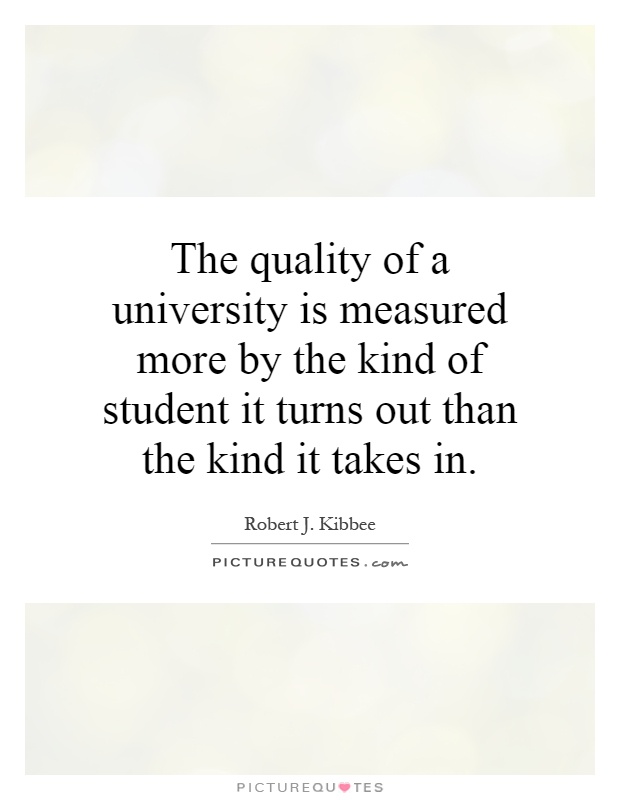The quality of a university is measured more by the kind of student it turns out than the kind it takes in

The quality of a university is measured more by the kind of student it turns out than the kind it takes in
Robert J. Kibbee, a prominent figure in higher education, believed that the quality of a university should be measured by the kind of student it produces rather than the kind it admits. This philosophy reflects a focus on the outcomes and impact of a university education, rather than simply the prestige or selectivity of the institution.Kibbee's perspective highlights the importance of the educational experience and the development of students during their time at a university. He believed that a university's success should be judged by the knowledge, skills, and values that students acquire, as well as their ability to apply these in their personal and professional lives. In this sense, the true measure of a university's quality lies in the success and contributions of its graduates.
Kibbee's emphasis on the kind of student a university turns out also speaks to the institution's role in shaping individuals and preparing them for the challenges of the world. A university should not only provide students with a strong academic foundation, but also foster critical thinking, creativity, and a sense of social responsibility. By producing well-rounded and engaged graduates, a university can make a meaningful impact on society and contribute to the advancement of knowledge and innovation.












 Friendship Quotes
Friendship Quotes Love Quotes
Love Quotes Life Quotes
Life Quotes Funny Quotes
Funny Quotes Motivational Quotes
Motivational Quotes Inspirational Quotes
Inspirational Quotes